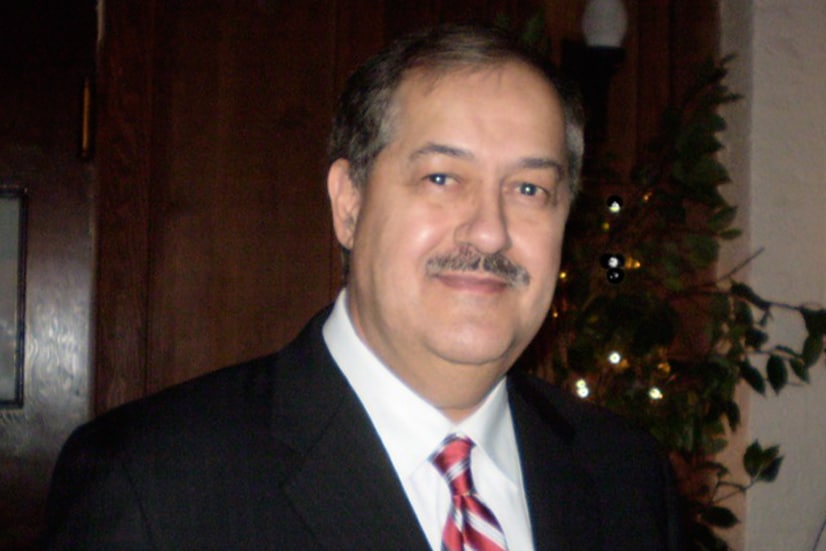The verdict is in: Don Blankenship, the outspoken coal baron who was CEO of Massey Energy when the 2010 Upper Big Branch disaster in West Virginia claimed the lives of 29 coal miners, has been found guilty of conspiring to violate federal mine safety standards.
It’s a small measure of justice for the families of the fallen miners who packed the front row of the courthouse to hear Judge Irene C. Berger read the verdict.
Blankenship is facing a maximum fine of $250,000 and a sentence of one year in prison on the misdemeanor conspiracy charge. He’ll be sentenced this spring.
Federal prosecutors made the case that it was Blankenship’s relentless pursuit of coal production and profits at the expense of worker and environmental safety that created the unsafe conditions that led to the deadly blast, despite the defense’s attempts to argue that Blankenship and his subordinates at Massey took safety concerns seriously.
“Every time you hear ‘hazard elimination,’ you should be thinking ‘propaganda,’” US attorney R. Booth Goodwin II told jurors in closing arguments. “Every time you hear ‘Massey,’ you should be thinking: ‘defendant’s criminal conspiracy to break the law and run coal.’”
Mr. Blankenship “pushed and he pushed and he pushed, and laws were intentionally broken,” Godwin said, according to the New York Times.
Mother Jones has published a lengthy examination of the legacy Don Blankenship leaves behind:
Blankenship cultivated an image as a Mingo County son made good—a good ol’ boy who ran a multibillion-dollar company from a double-wide trailer. And he saw himself as a heroic figure who brought jobs to the depressed enclaves of his native West Virginia. But with his gaze fixed on the bottom line, Blankenship crushed the mine workers union that was baptized in his backyard. Voluminous court records and government investigations show that he presided over a company that padded its profits by running some of the most dangerous workplaces in the country. Massey polluted the waterways that had sustained Blankenship’s forebears, rained coal dust on the schoolyards where his miners’ children played, and subjected the men he grew up with in southern West Virginia to unsafe working conditions.
A mascot of the coal industry’s worst excesses, Blankenship pumped millions of dollars into West Virginia’s political system to promote an anti-regulatory agenda and curry favor with state lawmakers and officials. But Massey’s pursuit of profits at any cost ultimately proved to be Blankenship’s downfall. When, on April 5, 2010, an explosion at Massey’s Upper Big Branch mine killed 29 workers—the worst mining disaster in the United States in 40 years—prosecutors began slowly building a case against the powerful mogul.
Rolling Stone once memorably called Blankenship “the dark lord of coal country.”
Though convicted, Blankenship actually got off fairly light. Prosecutors had also accused him of deceiving investors and regulators in the aftermath of the explosion and aimed for a 30-year prison sentence. But federal jurors ultimately found Blankenship not guilty of securities fraud and making false statements about Massey’s safety record.
Massey Energy was bought the year after the Upper Big Branch disaster by Alpha Natural Resources. Blankenship, who was known for his vocal and acerbic responses to the environmental activists and government regulators that targeted Massey over the years, had kept a fairly low profile since the sale of Massey — at least until this trial dragged him back into the spotlight.
Blankenship’s lawyers, of course, plan to appeal the verdict, and Judge Berger has allowed him to remain free on bond until sentencing.
Image Credit: Wikimedia Commons
Subscribe to our newsletter
Stay up to date with DeSmog news and alerts







